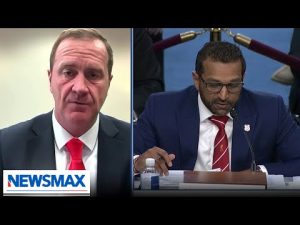Tensions between the United States and Venezuela are at an all-time high, and it looks like things could get even spicier in the coming days. The ongoing drama involves accusations, military buildups, and the looming threat of conflict, with Venezuelan President Nicolás Maduro at the center of it all. According to reports, the Trump administration has made it clear that it’s ready to take aggressive action against what they label as drug cartels operating out of Venezuela. These are not your average cartels; they are being linked directly to Maduro and deemed a serious threat not just to the region but also to the United States.
Following a series of troubling developments, President Trump took decisive steps on inauguration day by signing an executive order that levels drug cartels with the label of foreign terrorist organizations. This has opened the doors for the U.S. government to seize assets and take a more forceful approach against these criminal enterprises. Military options are now firmly on the table, and the administration has already deployed several warships, along with a variety of military aircraft, to reinforce its presence in the region. Trump’s goal seems clear: dismantle Maduro’s alleged ties to drug trafficking and show that the U.S. means business by leveraging its military capabilities.
Despite the grand military show, some questions linger regarding the real intention behind these actions. Is it merely political theater to create an illusion of strength, or is there a genuine risk of armed confrontation? The Trump administration’s push for military strikes on suspected drug trafficking vessels only adds to this uncertainty. After all, the stakes are high, and one can’t overlook the possibility of a miscalculation leading to a larger and unwanted conflict between the two nations.
Maduro, for his part, has been utilizing this rising tension to rally support within Venezuela. He’s taken the opportunity to label the U.S. as the aggressor, calling up local militias and working hard to reinforce a nationalistic narrative. This strategy could help him maintain his grip on power, particularly given his waning popularity. On the other hand, as the U.S. continues to strike targets linked to drug trafficking, they may inadvertently tighten the screws on the Maduro regime, creating a precarious balancing act for both sides.
Interestingly enough, behind the scenes, there seems to be a strange cooperation between the two adversaries. Recent events indicate that Trump has given a nod to some of the country’s oil exports while also resuming deportation flights to Venezuela. This backdrop complicates the narrative further, as both leaders manage to spin the hostility to their respective advantages, whilst avoiding a full-blown conflict that neither side truly desires. At the end of the day, one thing is clear: Maduro’s future and the U.S.’s military strategy in combating drug trafficking are closely intertwined, making this an unfolding drama worth keeping an eye on.
As events evolve, the world watches with bated breath. Will the U.S. continue to escalate its military presence, or will diplomacy sneak back into the picture? Whatever the outcome, one thing is certain—the stakes are high, the players are determined, and the tension is palpable.







